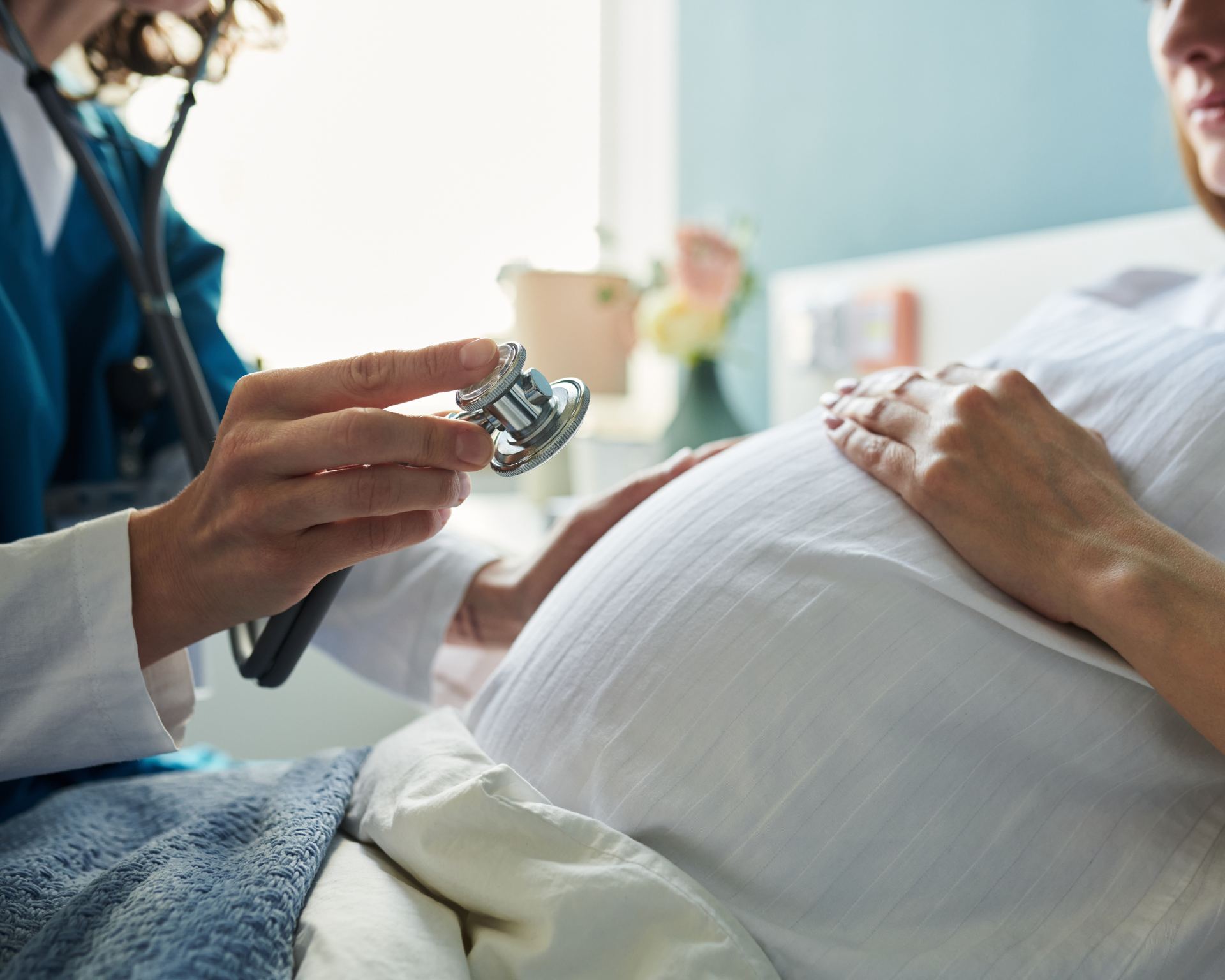How H.R. 1 Will Harm Maternal Health in the U.S.
The One Big Beautiful Bill Act will reshape how women experience pregnancy in the U.S., threatening access to care and deepening disparities.

Read Time: 4 minutes
Published:
The passage of the One Big Beautiful Bill Act (OBBBA) will reshape how women experience pregnancy in the United States. Signed into law on July 4, 2025, OBBBA includes major tax cuts, significant social program changes, and the largest reduction in Medicaid funding in the nation’s history. Projected losses add up to $1.2 trillion when paired with cuts to the Affordable Care Act.
Medicaid finances 42% of all U.S. births, 50% of rural births, and 60% of births to women of color. It plays a critical role in ensuring access to prenatal care, labor and delivery, and postpartum care (which was recently extended to 12 months in 48 states from the traditional 60 days). Beyond perinatal care, Medicaid and the Children’s Health Insurance Program (CHIP) also provide essential benefits for 40% of children under the age of six and health insurance for low-income parents, caregivers, and childcare providers.
Over the next decade, Medicaid faces $880 billion in cuts, with an estimated 11.8 million people projected to lose their health insurance due to new work and eligibility requirements. While pregnant and postpartum people are exempt from work requirements, state Medicaid programs do not always know which enrollees are pregnant. Therefore, work requirements may inadvertently be applied to pregnant women, while the added administrative responsibilities may stretch state Medicaid agencies thin, resulting in delayed prenatal enrollment, access to care, diagnoses, and interventions. Furthermore, work requirements and cost-sharing may also reduce access to preconception care as well as well-woman and reproductive health care services.
The disparities are only magnified for minority populations.
Reductions in Medicaid spending likewise pose a grave threat to the provision of maternal health services, particularly in rural areas. Hospitals are projected to lose $70 to $120 billion, with as many as 140 labor and delivery facilities expected to close or reduce services. Already, 35% of U.S. counties are maternity care deserts, defined as counties without a hospital or birth center offering obstetric care and without any obstetric clinicians.
These additional closures will force rural families to travel greater distances to give birth, increasing the risk of complications in communities where maternal mortality is already higher—26.1 deaths per 100,000 births in rural areas compared to 21.8 deaths per 100,000 births in urban areas.
The disparities are only magnified for minority populations. Black women stand at the forefront of the maternal mortality crisis in the U.S. and already face significant systemic barriers to achieving safe and positive outcomes during pregnancy. Compared to White women, they are three times more likely to die from pregnancy-related causes and disproportionately experience adverse pregnancy outcomes due to the historical legacies of institutionalized racism, implicit bias in medicine, and broader structural inequities.
Far from being a “big, beautiful bill,” the OBBBA will leave many with worse access to care for themselves and their children.
Funding cuts will force state Medicaid programs to make difficult decisions regarding which services to continue. Vital programs such as postpartum extensions, doula reimbursement, nurse home visiting programs, and family planning services are all poised to be cut or scaled back. Others, including postpartum depression screenings during pediatric visits or coverage for lawfully present pregnant immigrants, may also be on the chopping block. These services have been shown to be effective at reducing disparities, with doula care linked to lower cesarean rates, nurse home visiting improving maternal and infant outcomes, and pediatric screening enabling early detection of postpartum depression.
The bill further prohibits Medicaid reimbursement to organizations that provide family planning services that include abortions, restricting access to reproductive care, family planning, and women’s health care. This provision, though currently being challenged in court, would financially harm clinics, such as Planned Parenthood, that provide essential women’s health services, including contraception, testing for sexually transmitted diseases, and cancer screenings.
Far from being a “big, beautiful bill,” the OBBBA will leave many with worse access to care for themselves and their children. The choice to become pregnant will become even more dangerous, while maternal health providers are asked to do more with fewer resources. As maternal health rises on policy agendas and gains broader national attention, these changes risk widening inequities in a system already in crisis. We must invest more, not less, in the health of mothers and families.
The views expressed here are the authors’ own and do not necessarily represent the views of Public Health Post or Boston University School of Public Health.





